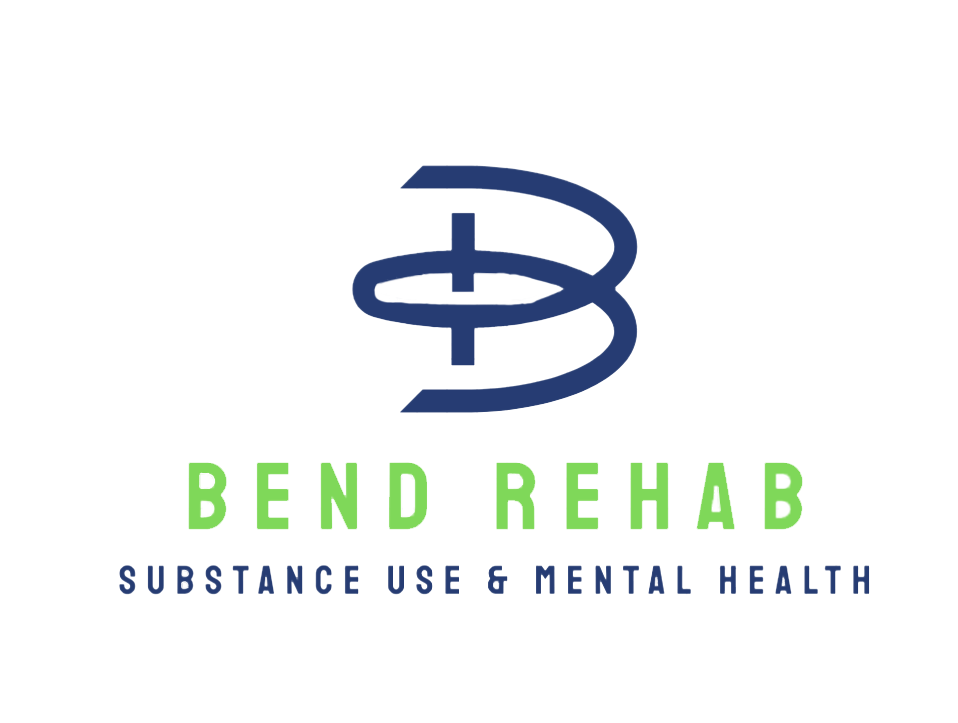Inpatient Drug Rehab in Bend OR
Taking the step toward recovery is one of the most courageous decisions a person can make. If you or a loved one is considering inpatient drug rehab in Bend OR, you likely have questions about what to expect. This blog provides a comprehensive guide, detailing every aspect of the inpatient rehab experience—from admission to aftercare—designed to empower you with knowledge and prepare you for the road to long-term recovery. Bend, OR, is not only known for its serene landscapes and welcoming community but also for being home to exceptional rehab facilities. With access to top-tier addiction treatment programs, patients can find both healing and support in this tranquil, supportive environment. Here, we’ll walk you through what inpatient rehab entails, highlighting why Bend, OR, is an optimal place to start your recovery journey.
What Is Inpatient Drug Rehab in Bend OR?
An inpatient drug rehab in Bend OR provides a highly structured and immersive approach to addiction treatment, offering a more comprehensive level of care compared to outpatient programs. In these programs, patients reside at the facility throughout the duration of their treatment, which typically ranges from a few weeks to several months, depending on their individual needs. This living arrangement ensures 24/7 access to medical professionals, counselors, and peer support, creating a safe and controlled environment that helps eliminate distractions and triggers. In addition to round-the-clock care, inpatient rehab often includes a combination of therapies such as individual counseling, group therapy, life skills training, and holistic activities like yoga or meditation, all designed to address both the physical and emotional aspects of addiction. This focused approach equips patients with the tools and support needed to build a strong foundation for long-term recovery.
Goals and Outcomes
The primary goal of inpatient rehab is to help individuals achieve and sustain long-term sobriety by addressing the root causes of addiction while fostering healthier coping mechanisms. In a structured and supportive environment, patients undergo a process that includes physical detox to cleanse the body of harmful substances, psychological healing through therapy and counseling, and the development of practical tools for relapse prevention. This holistic approach not only focuses on overcoming addiction but also empowers individuals to rebuild their lives with greater emotional resilience, improved mental health, and the skills needed to navigate future challenges.
Typical Duration
Most inpatient programs typically range from 30 to 90 days, offering a structured environment tailored to the individual’s specific needs. These programs include therapy, counseling, and medical support to address various aspects of recovery. For individuals requiring more intensive care or dealing with complex conditions, extended programs lasting several months are also available, providing additional time and resources to ensure long-term success.
First Steps
The process starts with reaching out to a facility of your choice to begin the conversation. This initial step is often straightforward and can be done through a phone call, email, or online inquiry form. Initial consultations typically involve phone interviews or in-person meetings, during which the staff takes the time to assess your unique situation, needs, and goals. They may ask questions about your current circumstances, preferences, and any specific requirements to ensure the facility and services are the right fit for you. This step is crucial in creating a personalized plan tailored to your needs.
Assessments and Evaluations
Once you’ve selected a program that fits your needs, the next step involves undergoing thorough medical and psychological evaluations. These assessments are designed to gather a complete understanding of your physical health, mental well-being, and any underlying conditions. The information collected helps professionals craft a personalized treatment plan tailored specifically to you. This process ensures that your unique needs are met effectively, addressing co-occurring disorders (if any), past traumas, or specific challenges that may impact your recovery journey.
Preparation for Admission
Patients are guided through the process of preparing for admission, which includes packing appropriate clothing for their stay, such as comfortable attire and any specific items recommended by the facility. They are also advised to arrange personal matters in advance, such as notifying family or employers, organizing transportation, and ensuring that any ongoing responsibilities at home are managed. Additionally, patients are assisted in completing all necessary paperwork, including medical forms, insurance information, and consent documents, to ensure a smooth and hassle-free admission process.
What is Detox?
Detox is the first and one of the most crucial phases of recovery, designed to safely remove harmful substances from the body. During this process, individuals may experience withdrawal symptoms, which can range from mild discomfort to more severe physical and emotional challenges, depending on the substance and duration of use. To ensure safety and comfort, detox is overseen by medical professionals who monitor the process closely and provide necessary support, such as medication or therapy, to manage symptoms effectively. This initial step lays the foundation for the rest of the recovery journey, helping individuals begin the process of healing both physically and mentally.
Common Symptoms
Withdrawal symptoms can range from mild discomfort to severe physical and emotional reactions, depending on the substance and the individual’s level of dependence. Common symptoms include nausea, anxiety, sweating, shaking, and restlessness, while more severe cases may involve intense cravings, insomnia, hallucinations, or even seizures. These symptoms can be distressing and, in some instances, life-threatening. Medical supervision is crucial during this time to monitor the patient’s condition, provide necessary interventions, and ensure their safety and comfort throughout the withdrawal process.
Support Systems During Detox
Facilities in Bend, OR, often provide 24/7 medical oversight, ensuring patients have constant access to professional care throughout the detox process. They may also offer medication-assisted treatment when necessary to help manage withdrawal symptoms effectively and safely. In addition to medical care, these facilities focus on emotional support through counseling, therapy, and compassionate staff, all aimed at making the detoxification process as safe and comfortable as possible while setting the foundation for long-term recovery.
Therapy Options
Treatment modalities in inpatient rehab often include:
- Individual Therapy: Sessions with a licensed therapist to explore personal challenges.
- Group Therapy: Collaborative discussions with peers to foster understanding and support.
- Family Therapy: Tackles issues within the family dynamic, promoting healthier relationships.
Cognitive Behavioral Therapy (CBT)
Cognitive Behavioral Therapy (CBT) is widely used in rehabilitation programs as an effective tool to help patients identify and change negative thought patterns that contribute to addiction. By addressing these harmful beliefs and behaviors, CBT equips individuals with healthier coping mechanisms and strategies to prevent relapse, promoting long-term recovery and emotional well-being.
Medication-Assisted Treatment (MAT)
For individuals struggling with opioid or alcohol addiction, Medication-Assisted Treatment (MAT) offers a comprehensive approach by combining FDA-approved medications with evidence-based behavioral therapies. This dual approach not only helps reduce withdrawal symptoms and cravings but also addresses the underlying behaviors and triggers associated with addiction, providing a pathway to long-term recovery.
A Typical Day
Structured schedules include therapy sessions, educational programs, exercise, and personal reflection time, all designed to support personal growth and well-being. Therapy sessions help individuals explore their emotions and challenges, while educational programs provide valuable tools and knowledge for self-improvement. Exercise promotes physical health and mental clarity, and personal reflection time encourages mindfulness, allowing individuals to process their thoughts and build positive habits for a healthier, more balanced life.

Facility Policies
Patients are expected to follow guidelines designed to maintain a safe, respectful, and supportive environment for everyone. This includes adhering to established schedules for appointments and activities, respecting the privacy and boundaries of others, and actively participating in their individualized treatment plan. By following these guidelines, patients contribute to a positive atmosphere that fosters healing, mutual respect, and personal growth.
Recreation and Visits
Many facilities in Bend offer a variety of recreational opportunities designed to support physical and mental well-being. These include activities like yoga sessions to promote relaxation and mindfulness, as well as outdoor excursions such as hiking or group sports, allowing individuals to connect with nature and stay active. Additionally, family visitations can often be arranged based on the rehab’s policies, providing loved ones the chance to offer support and encouragement during the recovery process.
Educational Programs
Rehabilitation centers often include classes that cover a variety of topics, such as the science behind addiction, the impact it has on mental health, and practical coping skills for managing triggers and stress. These classes are designed to educate individuals, provide them with tools for long-term recovery, and help them build a solid foundation for a healthier future.
Holistic Approaches
Yoga, meditation, and art therapy are some of the most popular offerings in Bend’s leading wellness facilities, designed to promote mental clarity, reduce stress, and encourage emotional healing. These activities provide individuals with the tools to reconnect with their inner selves, develop mindfulness, and express their emotions in a safe and supportive environment. Whether it’s through a calming yoga session, guided meditation, or creative art projects, these therapies aim to foster overall well-being and balance.
Fitness Programs
Access to gyms or fitness areas provides patients with the opportunity to engage in regular physical activity, which is essential for maintaining physical health. Exercise not only helps improve strength, flexibility, and cardiovascular health but also plays a key role in reducing stress and improving mental well-being. This holistic approach to fitness significantly contributes to a patient’s overall recovery and long-term health outcomes.
Forming Peer Groups
Peer groups are designed to provide mutual support, foster empathy, and create a sense of shared accountability among members. These groups bring together individuals with similar challenges, goals, or interests, creating a safe and non-judgmental space where everyone feels heard and valued. Members can openly share experiences, exchange ideas, and offer constructive feedback, helping to build trust and strengthen connections. Peer groups also encourage collaboration, enabling individuals to work together toward personal or collective goals. By learning from one another’s perspectives and experiences, each member can grow, overcome obstacles, and achieve success within a supportive and empowering environment.
Becoming a Mentor
Some patients go on to mentor others, finding a profound sense of meaning and purpose in supporting peers through their recovery journey. These mentors draw from their own personal experiences, openly sharing the challenges they faced, the obstacles they overcame, and the successes they achieved along the way. By offering guidance, encouragement, and practical advice, they serve as a source of inspiration and reassurance for those who are just beginning their path to recovery. Their presence creates a sense of community and hope, reminding others that recovery is not only possible but achievable with the right support and determination. Through these connections, mentors often find their own healing deepens, creating a mutually beneficial relationship rooted in empathy and shared growth.
Why Bend, OR, Is Ideal for Recovery
Bend’s serene surroundings and high-quality facilities provide the ideal atmosphere for healing and personal growth. Nestled in a peaceful environment, our programs are designed to create a sense of calm and focus, allowing individuals to fully embrace their recovery journey. With a supportive community of experienced professionals and peers who understand the challenges of recovery, you or your loved one can access the tools, resources, and encouragement needed to build a strong foundation for lasting success and a brighter future.
Conclusion
Choosing to enter an inpatient drug rehab in Bend OR, is a life-changing decision that requires strength and courage. Our facility offers personalized care tailored to your unique needs, ensuring you receive the support necessary for lasting recovery. Surrounded by a welcoming community and guided by experienced professionals, you’ll have the tools and encouragement to overcome addiction and build a healthier, more fulfilling future. With access to therapy, wellness programs, and a safe, structured environment, this can be the start of a brand-new chapter. If you’re ready to take the first step toward recovery, reach out to our team today by calling 1 (541) 802-7214 or clicking Bend Rehab. You don’t have to face this journey alone—hope and healing are closer than you think.




